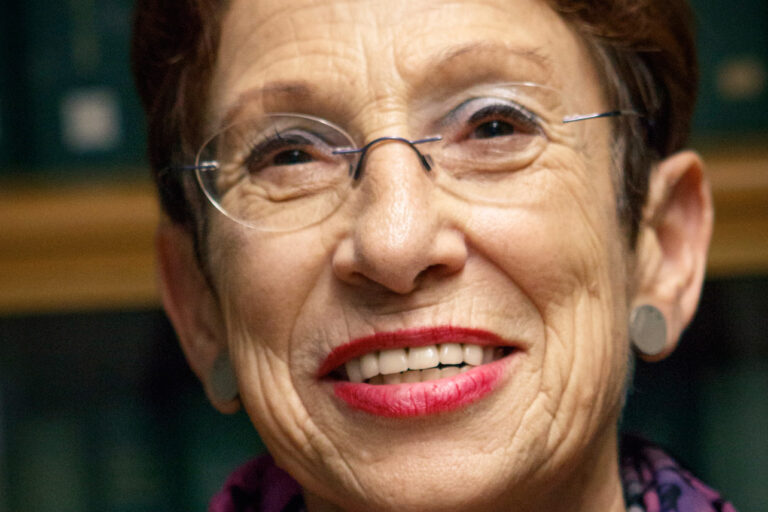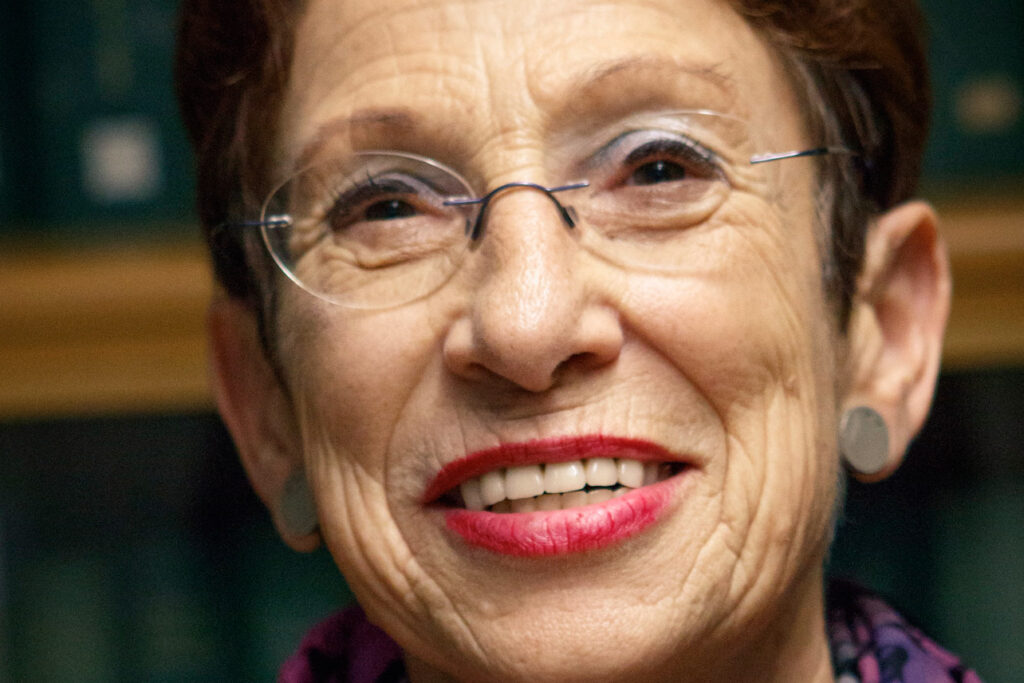"Analysing the “Gender Backlash” in Austrian Popular Culture: Back to Dirndls and Lederhosen"
As extreme right positions are increasingly shamelessly normalised, the gender and body politics of extreme right parties and movements have already entered mainstream discourses and popular culture (Lehner & Rheindorf 2019; Rheindorf & Wodak 2019; Wodak 2021a, b, 2024). In Austria, the Freedom Party (FPÖ) has long provided a populist front stage for extreme right gender and body politics and has recently been successful not only in elections but also in gaining wider social acceptance. Indeed, current coalition negotiations with the national-conservative party ÖVP may lead to a government, with the FPÖ’s leader Herbert Kickl as prime minister, after the FPÖ’s victory at the Austrian national election on 29th September 2024.
Arguably, this success is partly due to the strategic mitigation of their public rhetorics, while their ideology has remained unchanged but is continuously reworded and recontextualised, specifically after the COVID-pandemic. The COVID-19 pandemic was instrumentalised by the far-right which presented itself as the “defenders” of “democracy” and “freedom” against the “measures” of the then government, labelled as “Corona-dictatorship” (i.e., flip-siding; Krzyżanowski & Krzyżanowski 2024). In this way, the far-right is involved in “symbolic politics”, a “culture war” while reframing public discourses about health, climate, migration, gender, and culture.
In this lecture, I will analyze one dimension of the “culture war”, the vehement and polemical debates about the “normal” popular culture while employing the Discourse-Historical Approach (DHA) in Critical Discourse Studies (CDS) (Reisigl & Wodak 2016, Rheindorf 2019; Wodak & Rheindorf 2022). The most prominent intersection of the party politics and popular culture in Austria have been the performances of the controversial musician Andreas Gabalier. Updating and popularising the Volksmusik-genre for young and urban audiences, Gabalier has consistently drawn on traditional, even anachronistic, gender and body politics in interviews, songs, lyrics, stage performances, speeches and social media posts. Here, I will offer a cross-sectional investigation of current extreme right gender politics through analysing on the one hand programmatic publications of the FPÖ as well as public performances of FPÖ-politicians and, on the other hand, Gabalier’s performances of various kinds.
References
- Beverlander, P. & Wodak, R. (eds) (2019) Europe at the Crossroads: Confronting Populist, Nationalist, and Global Challenges, Lund: Nordic Academic Press.
- Krzyżanowski, M. & Krzyżanowski, N. (2024) ‘Conceptual Flipsiding in/and Illiberal Imagination –Towards a Discourse-Conceptual Analysis. Journal of Illiberalism Studies 4(2): 33-46.
- Lehner, S. & M. Rheindorf (2019) ‘Gender and body politics of the extreme right in Austria. Party politics meets popular culture’. In Bevelander, P. & R. Wodak, eds., 181-206.
- Reisigl, M. & Wodak, R. (2016) ‘The Discourse-Historical Approach (DHA)’, in Wodak, R. & Meyer, M. (eds), Methods of Critical Discourse Studies, 3rd ed., Los Angeles: Sage, 23–61.
- Rheindorf, M. (2019) Revisiting the Toolbox of Discourse Studies, Basingstoke: Palgrave.
- Rheindorf, M. & Wodak, R. (2019) ‘“Austria First” revisited: A diachronic cross-sectional analysis of the gender and body politics of the extreme right’, Patterns of Prejudice, 53(3): 302–20.
- Wodak, R. (2021a) The Politics of Fear. The Shameless Normalization of Far-right Discourse, 2nd rev. & ext. ed., London: Sage.
- Wodak, Ruth (2021b) ‘Crisis communication and crisis management during COVID-19’. Global Discourse 11(3): 329–353.
- Wodak, R. (2024). ‚Appeals to “Normality” and “Common Sense” in the Face of Global Uncertainty: An Interdisciplinary Discourse-Historical Approach, Journal of Informal Logic’.
- Wodak, R. & Rheindorf, M. (2022) Identities politics past and present, Exeter: University of Exeter Press.
Ruth Wodak is Emerita Distinguished Professor of Discourse Studies at Lancaster University, UK, and affiliated to the University of Vienna. Besides various other prizes, she was awarded the Wittgenstein Prize for Outstanding Researchers in 1996, an Honorary Doctorate from University of Örebro in Sweden in 2010, and an Honorary Doctorate from Warwick University in 2020. She is past-President of the Societas Linguistica Europaea. 2011, she was awarded the Grand Decoration of Honor in Silver for Services to the Republic of Austria, and 2018, the Lebenswerk Preis for her lifetime achievements, from the Austrian Ministry for Women’s Affairs. She is member of the British Academy of Social Sciences and member of the Academia Europaea. In March 2020, she became Honorary Member of the Senate of the University of Vienna. In June 2021, she was awarded the Bruno Kreisky Prize for her lifetime achievements, in November 2022 she received the Paul Watzlawick Ehrenring of the Medical Society + City of Vienna.
She has held visiting professorships in University of Uppsala, Stanford University, University Minnesota, University of East Anglia, and Georgetown University. 2008, she was awarded the Kerstin Hesselgren Chair of the Swedish Parliament (at University Örebrö). In the spring 2014, Ruth held the Davis Chair for Interdisciplinary Studies at Georgetown University, Washington DC. In the spring 2016, Ruth was Distinguished Schuman Fellow at the Schuman Centre, EUI, Florence. 2017, she held the Willi Brandt Chair at the University of Malmö, Sweden. 2018/2019 and 2021, she was a senior visiting fellow at the Institute for Human Sciences, Vienna (IWM).
Her research interests focus on discourse studies; gender studies; identity politics and the politics of the past; political communication and populism; prejudice and discrimination, and on ethnographic methods of linguistic field work. Ruth has published 12 monographs, 29 co-authored monographs, over 60 edited volumes and special issues of journals, and ca 430 peer reviewed journal papers and book chapters. Her work has been translated into the English, Italian, French, Spanish, Hebrew, Czech, Portuguese, German, Korean, Japanese, Chinese, Polish, Arabic, Russian, Czech, Bosnian, Greek, Slovenian, and Serbian.
Recent book publications include Das kann noch immer in Wien passieren (Czernin Publ. 2024); Identity Politics Past and Present. Political Discourses from Post-War Austria to the Covid Crisis. (Exeter University Press 2022; with M. Rheindorf); The Politics of Fear. The shameless normalization of far-right populist discourses (Sage 2021, 2nd revised and extended edition); Sociolinguistic Perspectives on Migration Control (Multilingual Matters 2020; with M. Rheindorf); Identitäten im Wandel. (Springer 2020; with R. de Cillia, M. Rheindorf, S. Lehner); Europe at the Crossroads (Nordicum 2019; with P. Bevelander); and The Routledge Handbook of Language and Politics (Routledge 2018, with B. Forchtner).
See http://www.ling.lancs.ac.uk/profiles/Ruth- Wodak for more information.
Please reach out to Hazel Velasco Palacios hgv5008@psu.edu if you have any questions about the event or need accommodations.
This event is co-sponsored by the Chaiken Dean’s Fund for Antisemitism Education, the Department of Women’s, Gender, and Sexuality Studies, the Humanities Institute, and the Mellon Foundation’s Sawyer Seminar Program.


Occurrences
-
Thursday, April 3, 2025, 9:00 a.m.–10:30 a.m.